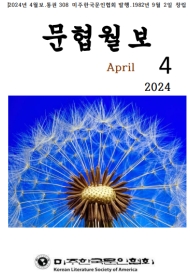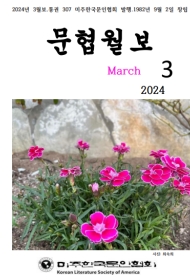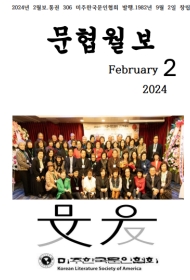So Mexicans are Taking Jobs from Americans
===========================================
Wolran Kim
December 2012
Poet Jimmy Santiago Baca was born in Santa Fe, New Mexico in 1952. He was abandoned by his parents at the age of two, and he lived in an orphanage. He led a harsh life in the streets until his arrest at the age of twenty-one on drug possession charges. He served six years in prison where he taught himself to read and write and began to compose poetry about life inside the prison and about the life he had led as an uneducated Chicano. He earned a BA and his PhD after being released from prison. He received many literature awards and conducted writing workshops.
His academic achievement and life as a poet overcame his harsh environment and history is a paragon of the modern capitalist society where he inherited wealth and social status. It is impressive that he taught himself to compose poetry in prison. Poets are often born through suffering and pain not through joy and happiness, and made by self reflection not by knowledge or teaching.
So Mexicans are taking Jobs from Americans, this title is asking, “so is this the conclusion that you want?” with a sarcastic tone and emotional expression. I feel that a big question mark appears between every word in his title. Mexican Americans often have been recognized as being representative of illegal immigrants and have been pointed as a scapegoat of the bad economy in this society. Also, they have been victims of inconsistent immigration policies.
This title has a suggestion about the hypocrisy and selfishness of American sentiments and that how this conclusion came up is through common sense. He is defining the hypocrisy of the American people and their attitudes when they categorize all Mexicans with the apparent stigma of being greasy, dishonest, lazy peasants who only want to come to America to steal jobs for lower pay than US citizens will accept.
This poem was actually written in 1977. The 1970s were the worst decade of most industrialized countries' economic performance since the Great Depression. Although there was no severe economic depression as witnessed in the 1930s, economic growth rates were considerably lower than previous decades. As a result, the 1970s adversely distinguished itself from the prosperous postwar period between 1945 and 1973. The oil shocks of 1973 and The Vietnam War came to a close in 1975. Hispanic Americans made up a significant number of workers in a number of industries, such as meat packing throughout the Midwest, agriculture in the southeastern United States, and in construction, landscaping, restaurant, hotel, and other service industries throughout the country.
The Immigration and Nationality Act of 1965 set strict quotas on the number of persons who could legally enter the U.S. from Latin American nations, and most New Mexican migration to the U.S. in the 1960s and 1970s was temporary and short-term. Mexican-American identity has also changed markedly throughout these years. In the past hundred years Mexican-Americans have campaigned for voting rights, stood against educational, employment, and ethnic discrimination and stood for economic and social advancement. At the same time many Mexican-Americans have struggled with defining and maintaining their community's identity.
From the way the poem is written, we can tell that the author, himself, is the speaker, and the White, American population is his audience. We can gather this information because of his wording, for example, within the first few lines when he writes, “And do you, gringo, take off your ring, drop your wallet into a blanket spread over the ground, and walk away?” The words “you,” “your,” and "gringo" imply that he is speaking to White Americans. The author writes this poem from an aggressive, angry point of view. He seems sickened of how Americans treat Mexican workers and how they are being accused of stealing jobs. “Do they mug you, a knife at your throat, /saying, I want your job?” This line made me think about how Americans treat immigrant workers. “I see this, and I hear that only a few people/got all the money in this world, the rest/count their pennies to buy bread and butter.”
The tone of this particular poem seems to be very bitter in nature. When he exclaims, “I see the poor marching for a little work, I see small white farmers selling out to clean-suited farmers living in New York, who’ve never been on a farm, don’t know the look of a hoof of the smell of a woman’s body bending all day long in fields.” Mexican immigrants work just as hard, if not harder than, White Americans, yet they reap little benefit from their efforts. The author also made reference to their ribs jutting out, and starving children. This could be intended to give the reader a mental picture of where a lot of immigrants are coming from, and give an understanding as to why they would choose to risk their lives to come to America.
Is making money or scraping by the reason America started? My belief is that this country started on the basis of making a better life for your family and to be able to live the life you want. Whether that is the freedom to practice your own religion, job, or to speak your mind, everyone should still be able to move to America to experience those freedoms today as well. I feel that the author was reminding us of what we have forgotten. Nevertheless, America has become a country controlled by money and the search for it. Millions of Mexican Americans are descendants of Braceros which Americans had started to offer to be laborers to the Mexicans.
The comical movie, A Day without a Mexican (2004, Directed by Sergio Arau) is a satire that indirectly expresses the influence of Mexicans in the United States. This film includes Mexicans’ anger and scathing reflection about this country. American society cowers with confusion when the Mexicans disappear suddenly; chaos begins at home, in restaurants and cleaning services, and spreads like wildfire across the whole country.
California State rushes to emergency breakdowns, and the American people cannot resolve the necessities of life. This movie portrays disabled people as being evil-minded and shows what happens when all the Mexicans finally cross the border to their own country as a thrilling revenge. Illegal immigrants say that the American government does not admit that they still depend on them. The dual contradiction of American capitalism is that they do not want to admit ‘producers,’ but only ‘production.’
So are Mexicans taking jobs away from Americans? Maybe, but that is also the American way.
===========================================
Wolran Kim
December 2012
Poet Jimmy Santiago Baca was born in Santa Fe, New Mexico in 1952. He was abandoned by his parents at the age of two, and he lived in an orphanage. He led a harsh life in the streets until his arrest at the age of twenty-one on drug possession charges. He served six years in prison where he taught himself to read and write and began to compose poetry about life inside the prison and about the life he had led as an uneducated Chicano. He earned a BA and his PhD after being released from prison. He received many literature awards and conducted writing workshops.
His academic achievement and life as a poet overcame his harsh environment and history is a paragon of the modern capitalist society where he inherited wealth and social status. It is impressive that he taught himself to compose poetry in prison. Poets are often born through suffering and pain not through joy and happiness, and made by self reflection not by knowledge or teaching.
So Mexicans are taking Jobs from Americans, this title is asking, “so is this the conclusion that you want?” with a sarcastic tone and emotional expression. I feel that a big question mark appears between every word in his title. Mexican Americans often have been recognized as being representative of illegal immigrants and have been pointed as a scapegoat of the bad economy in this society. Also, they have been victims of inconsistent immigration policies.
This title has a suggestion about the hypocrisy and selfishness of American sentiments and that how this conclusion came up is through common sense. He is defining the hypocrisy of the American people and their attitudes when they categorize all Mexicans with the apparent stigma of being greasy, dishonest, lazy peasants who only want to come to America to steal jobs for lower pay than US citizens will accept.
This poem was actually written in 1977. The 1970s were the worst decade of most industrialized countries' economic performance since the Great Depression. Although there was no severe economic depression as witnessed in the 1930s, economic growth rates were considerably lower than previous decades. As a result, the 1970s adversely distinguished itself from the prosperous postwar period between 1945 and 1973. The oil shocks of 1973 and The Vietnam War came to a close in 1975. Hispanic Americans made up a significant number of workers in a number of industries, such as meat packing throughout the Midwest, agriculture in the southeastern United States, and in construction, landscaping, restaurant, hotel, and other service industries throughout the country.
The Immigration and Nationality Act of 1965 set strict quotas on the number of persons who could legally enter the U.S. from Latin American nations, and most New Mexican migration to the U.S. in the 1960s and 1970s was temporary and short-term. Mexican-American identity has also changed markedly throughout these years. In the past hundred years Mexican-Americans have campaigned for voting rights, stood against educational, employment, and ethnic discrimination and stood for economic and social advancement. At the same time many Mexican-Americans have struggled with defining and maintaining their community's identity.
From the way the poem is written, we can tell that the author, himself, is the speaker, and the White, American population is his audience. We can gather this information because of his wording, for example, within the first few lines when he writes, “And do you, gringo, take off your ring, drop your wallet into a blanket spread over the ground, and walk away?” The words “you,” “your,” and "gringo" imply that he is speaking to White Americans. The author writes this poem from an aggressive, angry point of view. He seems sickened of how Americans treat Mexican workers and how they are being accused of stealing jobs. “Do they mug you, a knife at your throat, /saying, I want your job?” This line made me think about how Americans treat immigrant workers. “I see this, and I hear that only a few people/got all the money in this world, the rest/count their pennies to buy bread and butter.”
The tone of this particular poem seems to be very bitter in nature. When he exclaims, “I see the poor marching for a little work, I see small white farmers selling out to clean-suited farmers living in New York, who’ve never been on a farm, don’t know the look of a hoof of the smell of a woman’s body bending all day long in fields.” Mexican immigrants work just as hard, if not harder than, White Americans, yet they reap little benefit from their efforts. The author also made reference to their ribs jutting out, and starving children. This could be intended to give the reader a mental picture of where a lot of immigrants are coming from, and give an understanding as to why they would choose to risk their lives to come to America.
Is making money or scraping by the reason America started? My belief is that this country started on the basis of making a better life for your family and to be able to live the life you want. Whether that is the freedom to practice your own religion, job, or to speak your mind, everyone should still be able to move to America to experience those freedoms today as well. I feel that the author was reminding us of what we have forgotten. Nevertheless, America has become a country controlled by money and the search for it. Millions of Mexican Americans are descendants of Braceros which Americans had started to offer to be laborers to the Mexicans.
The comical movie, A Day without a Mexican (2004, Directed by Sergio Arau) is a satire that indirectly expresses the influence of Mexicans in the United States. This film includes Mexicans’ anger and scathing reflection about this country. American society cowers with confusion when the Mexicans disappear suddenly; chaos begins at home, in restaurants and cleaning services, and spreads like wildfire across the whole country.
California State rushes to emergency breakdowns, and the American people cannot resolve the necessities of life. This movie portrays disabled people as being evil-minded and shows what happens when all the Mexicans finally cross the border to their own country as a thrilling revenge. Illegal immigrants say that the American government does not admit that they still depend on them. The dual contradiction of American capitalism is that they do not want to admit ‘producers,’ but only ‘production.’
So are Mexicans taking jobs away from Americans? Maybe, but that is also the American way.













